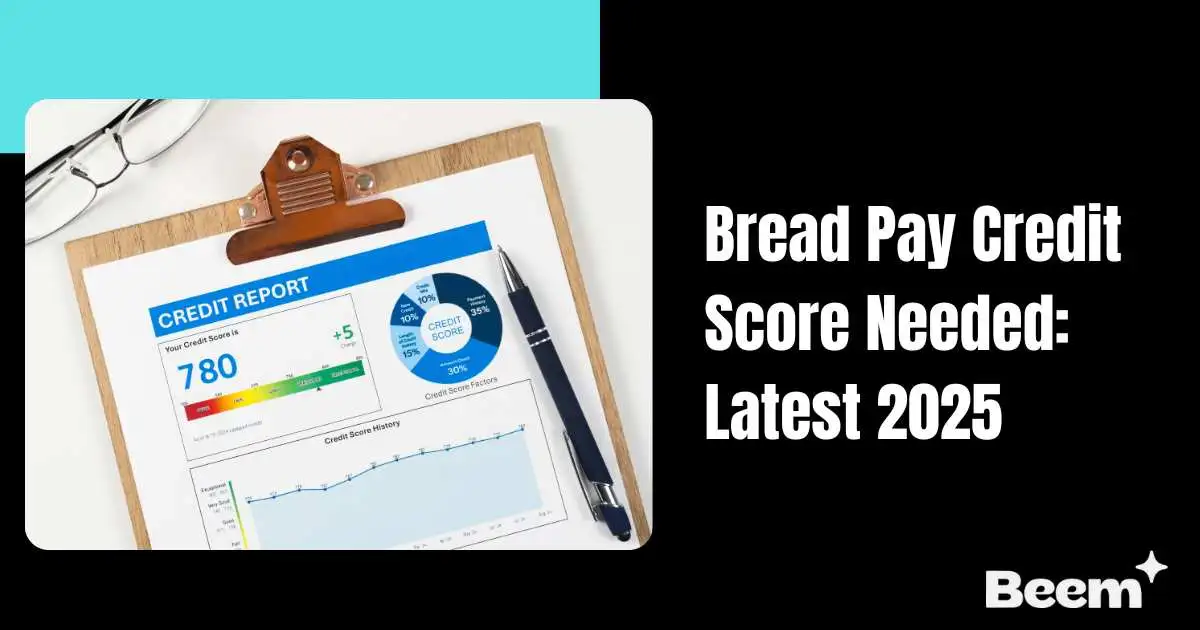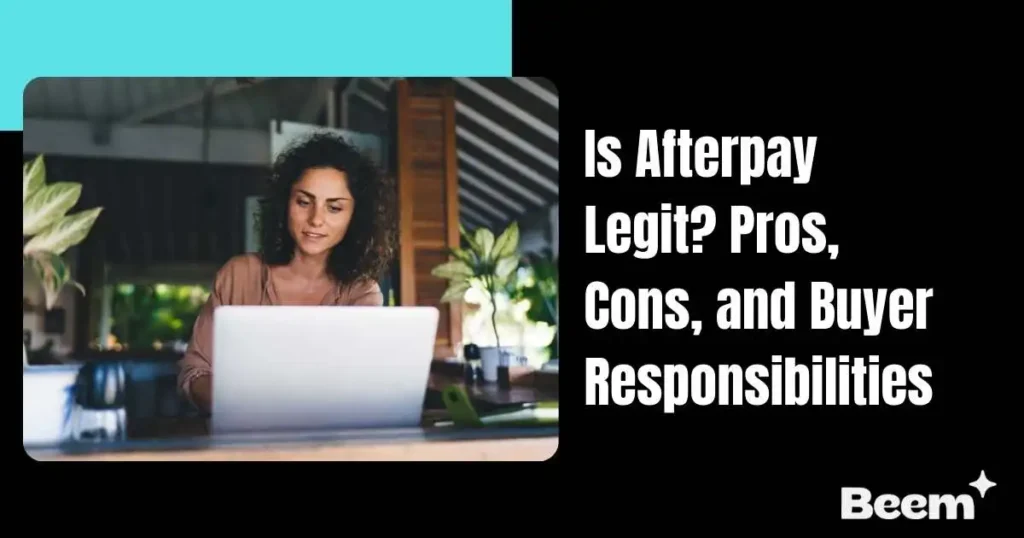What You Will Get At A Glance
In 2025, buy now, pay later (BNPL) financing continues to grow as a flexible option for shoppers, especially those who want to split large purchases into manageable installments. As part of this evolution, Bread Pay Credit Score has become a key consideration for consumers seeking to understand how their BNPL usage may impact their financial profile.
Bread Pay has become a recognized player in this space, offering point-of-sale financing for thousands of retailers. But unlike some BNPL providers that approve nearly everyone, Bread Pay uses credit-based underwriting. Understanding the credit score needed for approval and how to improve your chances can help you use this financing tool more effectively.
What Is Bread Pay and How Does It Work?
Bread Pay has become a go-to option for financing purchases, but many shoppers aren’t fully aware of how it operates. Here’s a closer look at its structure and backing.
Overview of Bread Pay’s Buy Now, Pay Later Model
Bread Pay operates as a buy now, pay later service designed to make shopping for big-ticket items easier. At checkout, customers can apply to break up their purchase into fixed monthly installments instead of paying the full amount upfront.
This service is widely available at major retailers across the U.S., from furniture stores to technology outlets, making it a convenient option for those looking to spread costs. Unlike “pay in four” providers that focus on smaller amounts, Bread Pay often specializes in larger purchases where extended repayment periods are more useful.
Bread Financial: The Lender Behind the Brand
Behind the Bread Pay name is Bread Financial, formerly known as Comenity Capital Bank. As a regulated financial institution, Bread Financial ensures compliance with lending laws and provides structured repayment terms, interest disclosures, and consumer protections.
This means that, while Bread Pay looks like a quick BNPL solution at checkout, it is effectively an installment loan offered by a licensed lender. Borrowers must meet minimum criteria before approval, which sets it apart from providers with looser requirements.
What Credit Score Is Needed for Bread Pay in 2025?
Credit score requirements are often the deciding factor when applying for Bread Pay. Understanding approval ranges and evaluation criteria in 2025 can help you prepare effectively for your application.
Minimum Credit Score Requirement
In 2025, most applicants require a credit score of at least 580–600 to qualify for Bread Pay. This threshold places Bread Pay in the “fair credit” category, making it more accessible than traditional credit cards but stricter than BNPL providers that skip credit checks.
While a score in the 580–600 range may unlock smaller loan amounts, applicants with higher scores, typically 650 or above, are more likely to receive approval for larger purchases, better repayment terms, and lower APRs.
Does Bread Pay Do a Hard or Soft Credit Check?
Bread Pay uses a two-step process. During prequalification, the lender performs a soft credit check, which does not affect your credit score. If you choose to proceed after reviewing your estimated terms, a hard credit inquiry will be conducted. This hard pull may temporarily reduce your score by a few points, but it’s necessary to finalize approval and funding.
Other Factors Besides Credit Score
While a credit score is important, Bread Pay also evaluates several other factors. Income verification plays a crucial role in ensuring that borrowers have the means to make installment payments. Debt-to-income ratio is considered, as a high level of existing debt may reduce approval chances.
Additionally, Bread Pay may review your bank account history to confirm recent deposits, steady inflows, and responsible account management, such as avoiding overdrafts. Together, these factors paint a complete picture of creditworthiness beyond the raw score.
How to Increase Your Chances of Bread Pay Approval
Not every applicant is approved right away, but you can take proactive steps to improve your profile. Here are strategies to boost approval odds and strengthen your application.
Check Your Score First
Before applying, it’s essential to know where you stand. Free tools like Beem’s credit monitoring can give you instant access to your credit score and a breakdown of the factors affecting it. Checking ahead of time helps you avoid unnecessary applications that could result in denials or multiple hard inquiries.
Reduce Outstanding Debts
Paying down existing balances, especially on credit cards, can dramatically improve your approval odds. Lenders look closely at credit utilization, the percentage of available credit you’re using, and lowering this ratio can make you appear less risky. Even paying off a few hundred dollars can help shift your profile into a stronger category.
Keep Bank Activity Positive
Lenders like Bread Pay prefer to see stability in your bank account. Regular deposits, consistent inflows, and avoiding overdrafts help demonstrate reliability. If your account shows frequent negative balances, approval could be less likely. Maintaining a positive activity level in the months leading up to your application can enhance your chances of success.
Use Beem’s BudgetGPT to Optimize Finances
Budget optimization tools, such as Beem’s BudgetGPT, can help you improve your financial habits in real-time. Personalized insights help you manage spending, reduce the risk of overdrafts, and ensure funds are available for future payments. By keeping your budget balanced and predictable, you’ll appear more creditworthy to lenders like Bread Pay.
Bread Pay vs. Other BNPL Options: Credit Score Comparison
Bread Pay isn’t the only BNPL service available. Comparing it against providers like Affirm, Klarna, and others reveals key differences in approval criteria, borrowing limits, and flexibility for different financial situations.
Bread Pay vs. Affirm
Affirm and Bread Pay share similarities, but Affirm often approves borrowers with scores as low as 550. Bread Pay tends to be stricter, requiring stronger profiles, though it provides access to a broader range of retailers. Borrowers with fair credit may lean toward Affirm, while those with stronger credit may benefit from Bread Pay’s higher-ticket financing.
Bread Pay vs. Afterpay & Klarna
Afterpay and Klarna frequently approve borrowers without conducting credit checks, making them accessible to individuals with poor or no credit history. However, these services typically limit financing to smaller amounts with short repayment periods. Bread Pay requires more creditworthiness but offers higher borrowing limits, making it a better option for large purchases, such as appliances or furniture.
Bread Pay vs. Beem Cash Advance
Unlike BNPL financing, Beem’s instant cash advance option offers access to up to $800 without requiring a credit check. Funds are available instantly, making it ideal for covering urgent expenses. Bread Pay, in contrast, is structured as an installment loan tied to purchases and requires a stronger credit score. For applicants who cannot meet Bread Pay’s requirements, a cash advance can be a flexible alternative.
What to Expect During the Bread Pay Application Process
Applying for Bread Pay involves several steps, from prequalification to final approval. Knowing the process beforehand can help you avoid surprises and prepare the required documentation smoothly.
Prequalification Flow
Applying for Bread Pay begins with a prequalification process at checkout. You’ll be asked to enter basic personal information, including your name, address, date of birth, and the last four digits of your Social Security number. Within seconds, Bread Pay performs a soft credit check and provides estimated terms if you qualify.
Final Approval Steps
If you accept the terms, Bread Pay requires additional verification. This can include uploading pay stubs or bank statements. At this stage, the lender performs a hard credit inquiry, finalizes your approval, and locks in the repayment schedule. The approved loan amount, APR, and installment terms are disclosed before the purchase is completed.
Common Reasons for Denial
Denials often occur due to low credit scores, missed payments on recent credit accounts, or an overly high debt-to-income ratio. Another common reason is having too many recent credit applications, which may signal risk to lenders. If denied, you’ll typically receive an explanation, which can help guide improvements before reapplying.
Using Bread Pay Responsibly: Tips for 2025 Borrowers
Getting approved is only half the story. Using Bread Pay wisely is crucial to avoiding financial setbacks. These tips can help you stay on track and protect your credit.
Understand Your Repayment Terms
Bread Pay loans come with specific APR ranges and installment lengths, which vary depending on your credit profile. Carefully review these terms before committing. Setting up auto-debit payments can ensure you never miss a due date, reducing the risk of penalties.
Avoid Missed Payments
Missing payments can harm your credit score and result in late fees. While BNPL services may seem low-risk, they are reported to credit bureaus in some cases, meaning that your repayment behavior can influence your credit history for years to come.
Alternatives When Denied
If Bread Pay doesn’t approve your application, there are still options available. Beem’s instant cash advance provides no-credit-check access to up to $800, helping you cover urgent needs. Local credit unions or employer-based salary advances can also be explored as alternatives. Additionally, gig work or side income can provide a temporary boost to cover expenses until financing becomes more accessible.
A Solid Option—If You Qualify and Budget Carefully
Bread Pay is a valuable financing option for borrowers with at least fair credit, a reliable income, and a stable financial history. It allows you to spread large purchases into structured monthly payments, often at more favorable rates than credit cards.
This makes it especially useful for larger-ticket items, such as appliances or furniture. However, approval hinges on demonstrating financial responsibility. Careful budgeting is essential to stay on top of due dates, as missed payments may result in fees, harm your credit score, and reduce future borrowing options.
Final Thoughts: Should You Use Bread Pay in 2025?
Deciding whether Bread Pay is the right choice depends on your credit profile, financial habits, and goals. Here’s a closer look at when it makes sense, and when to consider alternatives.
Don’t Qualify? Beem Can Still Help
For those who don’t meet Bread Pay’s requirements, alternatives are available. Beem offers instant, no-credit-check cash advances of up to $800, making it an accessible solution for urgent expenses. Beyond cash advances, Beem provides budgeting support, credit monitoring, and financial coaching to help strengthen your long-term financial profile.
By utilizing these tools, you can develop healthier money habits, enhance your creditworthiness, and position yourself for approval with services like Bread Pay in the future.
FAQs: Bread Pay Credit Score & Approval Questions
What is the minimum credit score needed for Bread Pay in 2025?
To qualify for Bread Pay in 2025, most applicants require a minimum credit score of 580. However, aiming for 600 or higher significantly improves approval chances, helps secure larger loan amounts, and may lead to more favorable terms such as lower APRs.
Does Bread Pay do a hard credit pull?
Bread Pay starts with a soft inquiry during prequalification, which doesn’t affect your score. If you choose to proceed, a hard credit check will be performed, which may temporarily reduce your credit score, but it’s required to finalize approval and loan term
Can I get Bread Pay with no credit history?
Approval with no credit history is unlikely, though not impossible. Applicants with limited history but strong income and responsible banking activity may still qualify for smaller financing amounts. Generally, Bread Pay favors applicants with established credit behavior and repayment records.
Will Bread Pay affect my credit score?
Yes, Bread Pay can impact your credit score. Prequalification itself won’t affect it, but a full application triggers a hard inquiry. Additionally, repayment performance may be reported to credit bureaus, so making on-time payments can improve your score, while missed ones can hurt it.
What if I’m denied Bread Pay?
If you’re denied Bread Pay, it’s not the end of the road. Applicants can explore alternatives like Beem’s instant cash advance or other BNPL providers. It’s also wise to focus on improving credit by lowering debt, making timely payments, and reducing hard inquiries before reapplying.






